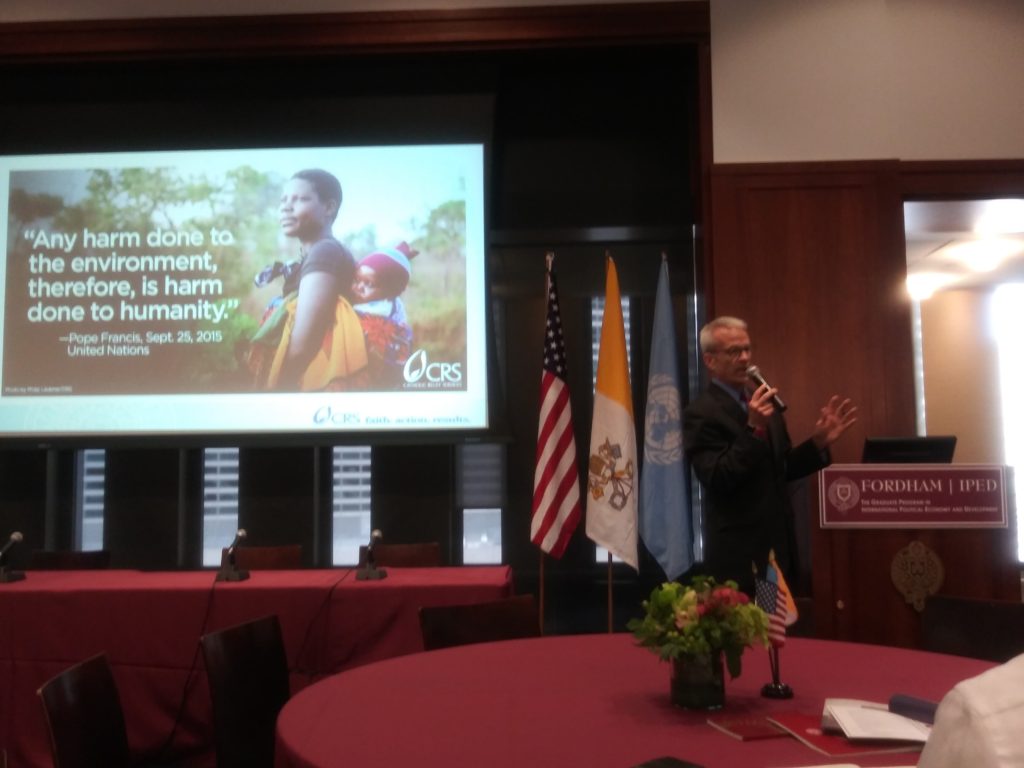
By: Hannah Fort ‘20
International food security was one of the key issues addressed at the Reduce World Hunger: Pope Francis’ Call for New Approaches conference on September 28 th , 2018. Bill O’Keefe, the Vice President for Government Relations and Advocacy at Catholic Relief Services (CRS), addressed this topic directly. He believes that integrated approaches should be the future of how organizations look at food security; multi-sectoral, multi-year programs are most needed but current programs are not set up to provide this.
Instead of working with households one-by-one, CRS has developed an Integral Human Development Framework which they hope to use to influence the systems and structures that households operate within. These systems and structures need to function in a way that allows people to thrive. CRS focuses on the most vulnerable people to help them find a pathway to prosperity. The issue threatening the food security of poor families and farmers worldwide is climate change, which needs long-term,
integrated methods. While emergency assistance is a part of what CRS does, they are looking for new approaches such as direct cash transfers in refugee camps, which they believe will help preserve human dignity.

Addressing climate change as a driver of food insecurity is imperative. Looking at the problem on a country-by-country basis has allowed CRS to implement programs that are geared towards the culture and the people. In Malawi, one of the world’s most densely populated and underdeveloped countries, CRS has implemented the Wellness and Agriculture for Life Advancement (WALA) program. They have had around 250,000 participants so far and seen a 65% increase in organic growing matter. The El
Salvador Cacao Alliance has helped farmers recover from the loss of their coffee crop due to disease and insects sped along by climate change. Working together with the Salvadoran government on horticulture policy, 6,500 farmers are looking to plant the traditional cacao trees across 16,000 acres of land. Speaking on the sustainability of these projects, Bill O’Keefe says that the goal is to, “build a capacity for support not dependent on us.”
Bill O’Keefe also offered his thoughts on impact investing. Taking private capital and investing it towards the world’s poorest, especially in health, youth employment, migrants/refugees, and climate change can make a big difference. Countries need to work together on these issues in an integrated way or we will never get ahead of the problem and always be chasing solutions.
